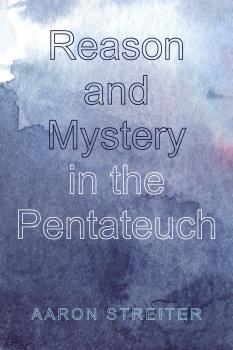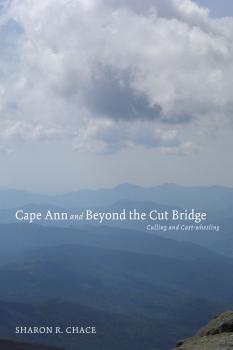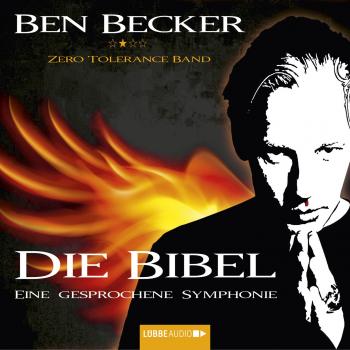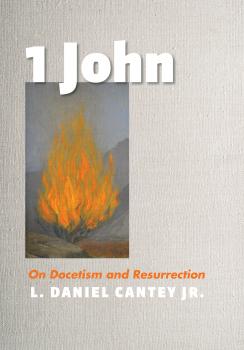ТОП просматриваемых книг сайта:
Религия: прочее
Различные книги в жанре Религия: прочее, доступные для чтения и скачиванияАннотация
Reason and Mystery in the Pentateuch is grounded in the faith that the following related truths are self-evident: God revealed to Moses two works, known together as the Torah. The first work is the Pentateuch (the Written Law), revealed as a book consisting mainly of a sacred history and a codex. The second work is the Mishnah (the Oral Law), an elucidation of the codex transmitted orally through many generations, then redacted as a book. The Torah has never been corrupted; the text read today is identical to the text God revealed to Moses. Because God, who is perfect, revealed the text, it must be perfect. Only in it must intent and execution be identical. And because God is essentially incomprehensible, the Pentateuch must be, at least in part, incomprehensible. The present book will interest traditionalist Christians, to whom, as to traditionalist Jews, the Pentateuch is sacred. It will interest readers not committed to the truths above for the insight it provides about readers for whom those truths are self-evident. For those readers, readers of faith, the Pentateuch must be not merely read, but continuously, intently, and reverentially studied. Reason and Mystery in the Pentateuch demonstrates how such study of the Pentateuch, considered as a literary artifact, may be conducted. In particular, it underscores the limits imposed by its Author upon the capacity of human intelligence to comprehend the plain meaning of its sacred history and its codex, and the linguistic strategy by which those limits are established.
Аннотация
"Rejoicing in hope, patient in tribulation," writes the apostle. In this collection of poetry, the author applies those phrases, responding to God's sometimes-dark providences with the light of Scriptural meditation. The manifold themes of the inspired Psalms shine out, giving endurance to those who wait for the Lord's deliverances, expressing a longing for justice to those who are confronted by God's enemies, interceding for mercy to those who are lost, and rejoicing in a salvation that is ever new. Throughout the pages a hope shines, knowing that as God comforts his disciple in any tribulation, so that comfort is offered widely to others.
Аннотация
This book straddles the fertile middle ground between science and religion at a time when the conversation is dominated by extremists on both sides. Taking seriously the modern view of the universe, including the fossil record for the history of life across millions of years, the author considers our relationship to the rest of nature. In addition, the age-old questions concerning meaning, values, and our place within it all are perhaps more pressing than ever before. This work provides a broad engagement with major ideas, including evolution and earth stewardship, while drawing upon a rich heritage of philosophy and literature and doing so in a manner accessible to the general reader.
Аннотация
This is a multi-view book in which representatives of differing viewpoints make a positive statement of their case, followed by responses from the others, and concluding with a rebuttal by the original author. The topic at hand in this book is the identity of Jesus (also known as Christology). What is the meaning of Jesus's identity as «the Son of God»? Charles Lee Irons argues that the title «Son of God» denotes his ontological deity from a Trinitarian perspective. Danny Andre Dixon and Dustin R. Smith challenge this view from two different non-Trinitarian viewpoints. Smith argues that Jesus is the authentically human Son of God, the Davidic Messiah, who did not possess a literal preexistence prior to his virgin birth. Dixon argues that Jesus is God's preexistent Son in the sense that God gave him life or existence at some undefined point prior to creation. The authors engage the topic from the perspective that reverences the authority and inspiration of Scripture as the final arbiter of this debate. The literature of early Judaism is also engaged in order to try to understand the extent to which the New Testament's Christology may have been influenced by or operated within the context of Jewish conceptions of divine secondary beings as agents of God.
Аннотация
My poems are about places on Cape Ann, in the wider world, and in interior places of mind and heart. I often write poetry about beauty as revelatory of transcendent meanings in nature, community, and intuitions of the divine. The introduction reveals my literary and religious connections to Lucy Larcom, a nineteenth-century writer who is most famous for her book of prose, A New England Girlhood Outlined from Memory and her book of poetry, Wild Roses of Cape Ann. For both my historical soul sister and for me, beauty is sacramental, signaling the Creator in creation. Beauty is beatitude infused. I invite you to contemplate with me. Perhaps our paths will converge. It is my hope that you will discover challenge, comfort, and even joy.
Аннотация
How you spend your time and money controls what happens on this planet . . .
Planet Earth and its people are in danger. We face ongoing economic and ecological crises. These will deepen unless all of God's people begin to act as one global community. Natural resources are diminishing and the economic world order is changing. We cannot go on living as though we can call up another planet. Change is needed now and this book addresses that. The biblical vision of the world as oikos, meaning household, is God's challenge to all people about the way we live now–and in the future. Oikos affirms the need for reconciliation and peace between faiths and nations and should determine our economic practices and how we care for the planet. In this timely and challenging book is a renewed call to follow the Maker's instructions. Whether it is 9/11, Chernobyl, or the 2008 financial crash, that call for change is repeating itself. This book not only explains why we need to change but also provides practical advocacy of how you can help to achieve it.
Planet Earth and its people are in danger. We face ongoing economic and ecological crises. These will deepen unless all of God's people begin to act as one global community. Natural resources are diminishing and the economic world order is changing. We cannot go on living as though we can call up another planet. Change is needed now and this book addresses that. The biblical vision of the world as oikos, meaning household, is God's challenge to all people about the way we live now–and in the future. Oikos affirms the need for reconciliation and peace between faiths and nations and should determine our economic practices and how we care for the planet. In this timely and challenging book is a renewed call to follow the Maker's instructions. Whether it is 9/11, Chernobyl, or the 2008 financial crash, that call for change is repeating itself. This book not only explains why we need to change but also provides practical advocacy of how you can help to achieve it.
Аннотация
Essays present a fascinating prose communication; well presented, each works out a consistent theme. The essays in this collection, created over a fifteen-year span, stand on their own, although several themes carry through–Jesus's lordship, the kingdom, the church, the faith; these constitute constants framed by the three Forms of Unity, that is, the original stuff of the Reformation.
Аннотация
What if heresy had grown within the church, maturing secretly over more than a millennium, working ill under the cover of right belief and worship? This startling and provocative book argues that the ancient heresy of Docetism, reappearing in a form resonant with its original denial of Christ's body, has brought the Western church to its current state of disrepair. Docetism has irreparably fractured Western Christendom, reducing the church to a tangled mass of denominations and sects, while also infecting the course of Western society beyond the ecclesia. Progressing from an ontological foundation oriented toward the dissolution of form, Docetism has led peoples convinced of their march toward unity into ever deepening alienation. Although it has repercussions for theological anthropology, this ontological foundation has its profoundest implications for the doctrine of God. The solution to Docetism, as proposed by the author, begins with a theory of the Trinity grounded in the tenets of biblical Wisdom and explicated in terms of the relations of origin between the divine persons.










